The Unesco world heritage city facing up to the horror of knife crime after two teenage murders
Bath is associated with world-famous attractions like the Roman Baths and Royal Crescent – but Alex Ross finds there’s another side to the city exposed by the murders of two teenagers
The clock on the city’s magnificent Gothic-style abbey hasn’t yet struck 10am. But already, under the shadow of Bath Abbey, there’s a gaggle of tourists busy taking pictures while an animated tour guide stands with a clipboard in one hand and a colourful umbrella in the other.
“Now if you follow me,” he shouts, as he slowly leads the brigade toward the entrance of one of the city’s highlights, the 2,000-year-old Roman Baths, surrounded by honey-coloured Georgian architecture.
It’s a damp and cold winter’s day but the streets are alive with visitors happily marvelling at the many historic attractions on view that make Bath a famed Unesco world heritage site.
But there are hints of a disturbing story to be told in the ancient city.
The first clue is two mounted police officers on patrol who, although stopping for pictures, are not out for show. The second is a decorated memorial in the main Southgate street in memory of a murdered teenager.
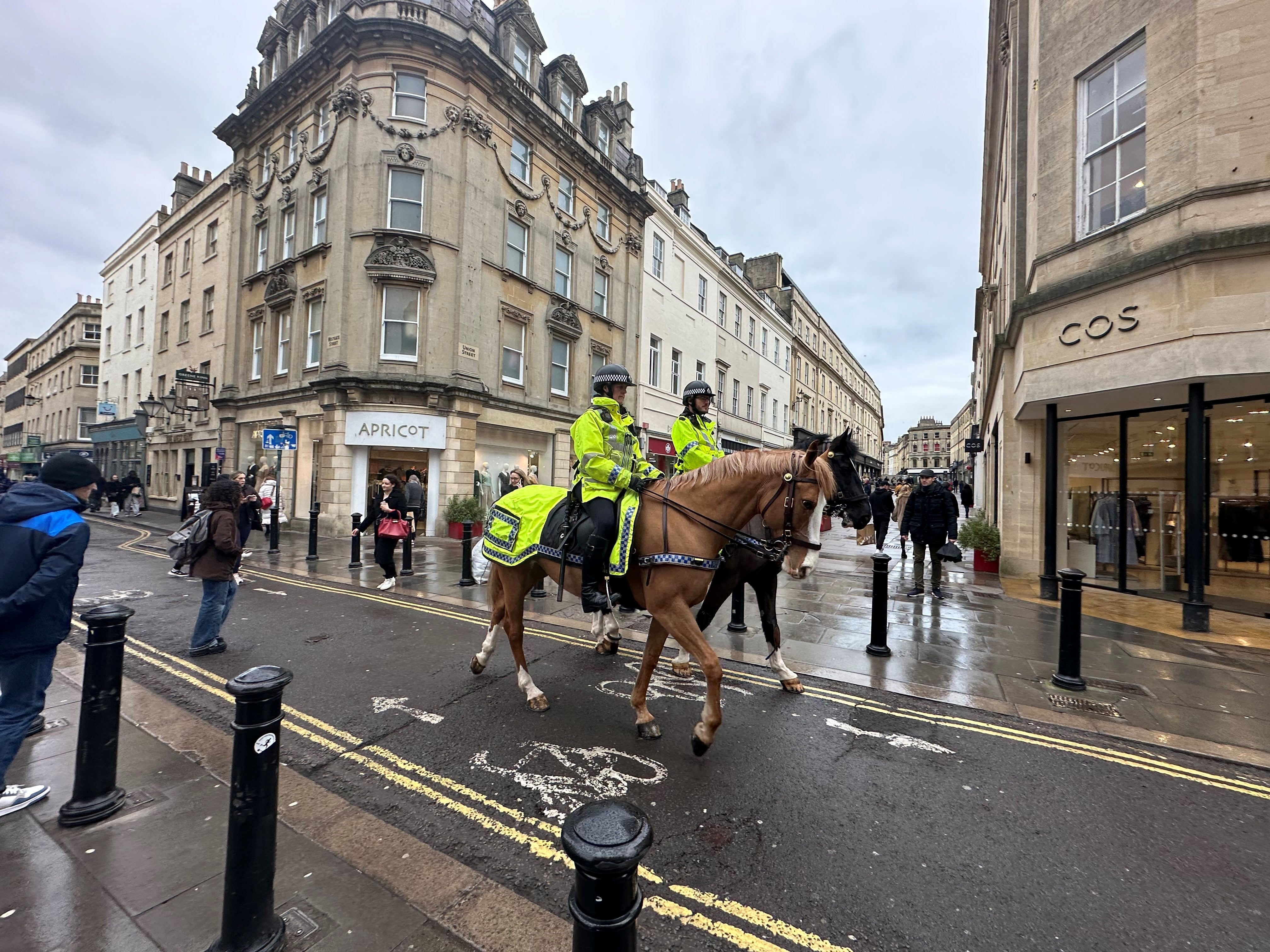
After a stabbing in January next to the Royal Crescent, another one of the city’s most popular tourist spots, police have stepped up patrols as a 17-year-old arrested on suspicion of attempted murder remains on bail.
That shock incident came after a murder, that of 16-year-old Mikey Roynon, stabbed to death with a zombie knife at a birthday party, in June.
And a month before Mikey’s tragic death came another killing: 18-year-old Ben Moncrieff was murdered with a knife outside McDonald’s in the city centre as he tried to break up an argument. It’s in his memory that the memorial was set up.
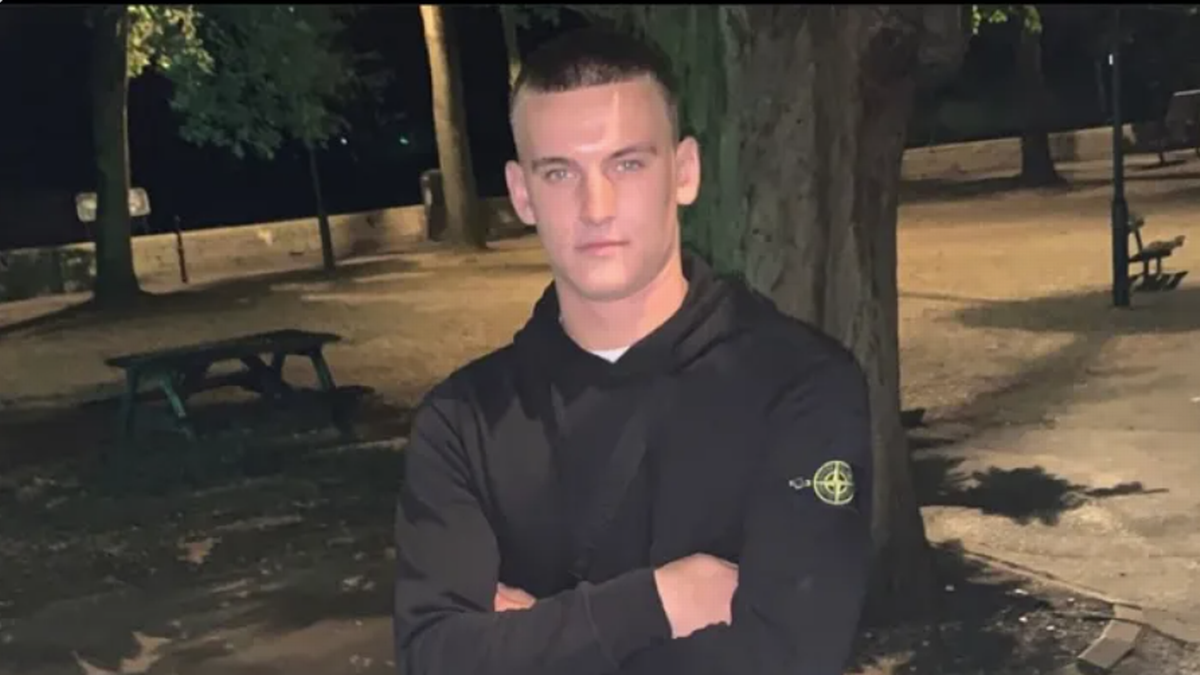
Such devastating attacks might not seem out of the blue in larger cities like Birmingham and even Bristol, where three teenagers have died in stabbings this year alone.
But in Bath, where parking charges and the city’s battle against a rise in Airbnbs are often the hot topics, it is a wake-up call for police, community leaders and parents.
“There isn’t suddenly a massive issue with knife crime in Bath compared to a year or two ago but I think we have been feeling so safe because we had none of these incidents and now we’ve had three in a row,” the city’s Lib Dem MP Wera Hobhouse told The Independent.
“We are, of course, incredibly alarmed and so should we be.”

Crime data issued by the Home Office is broken down by local authority, not by city. However, with the highest number of serious violence incidents in Bath and North East Somerset taking place in Bath, the statistics provide an indicator of the issue.
The latest figures show that while violence against a person in the area remained static, the number of weapon possession offences rose 50 per cent to 81 in the year ending in September 2023.
The numbers are small. Of the 81 weapon offences, 15 were for carrying knives.
But the data only tells part of the story, as local police acknowledge. Parents living in housing estates in some of the city’s deprived pockets, out of sight from the tourist attractions, say the recent events have brought fear for their children’s safety.
Youth groups have also told The Independent that fewer young people feel safe enough to attend their sessions. One leader even said he was working on a prototype for a stab-proof vest with a friend who works at one of the city’s two universities.
Ben Moncrieff’s mother Sharon Hendry knows all too well the consequences of knife crime and is among those in the city calling for an end to the violence.
On the night her son died, she received a call from Ben’s girlfriend saying he had been attacked during a row between his killer and another man. As his girlfriend comforted him, among the last words the injured teenager heard as he lay bleeding on the floor were, “Mummy’s coming, Mummy’s coming”.
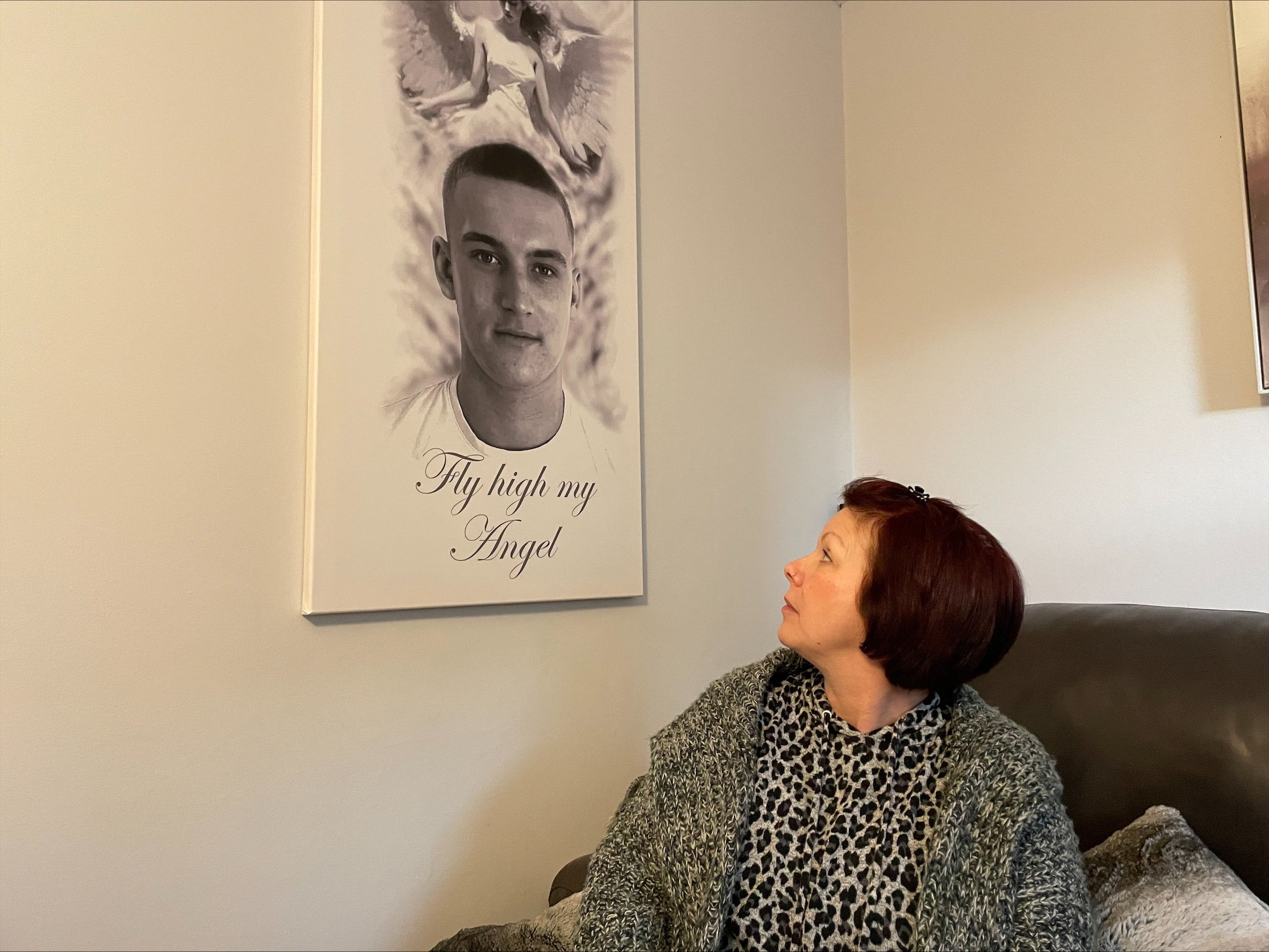
Ms Hendry arrived at the scene as soon as she could and desperately tried to revive her son – but he was pronounced dead shortly later.
“I thought Ben was safe in Bath, I used to get worried about him being in Croydon when seeing his girlfriend,” she said, “but I never thought it’d happen here, not in a million years,” Ms Hendry told The Independent from her living room where a large canvas picture of her son hangs on the wall.
“When I got to him he was lying with his eyes open looking straight forward. The paramedics let me try and wake him up. I tried, and I tried. ‘Wake up’, I said, over and over. I saw the blood and the wound and the paramedics took him for invasive heart pushes. I thought the longer it went on that he was gone. Then they told me he’d died.
“I was completely stunned. When I got home I saw Ben’s laundry in the washing machine, and that’s when it hit.”
Ms Hendry has kept Ben’s bedroom the way he left it, with his bed unmade, a bottle of vodka on the window shelf and his gym clothes still out. Downstairs she has framed a consent form for a tattoo, signed by him on the day before he died – the last handwriting of Ben his mother has.

“It’s absolutely broken me”, she said. “I can’t do anything any more. I can’t go on holiday, I can’t enjoy Christmas or birthdays. That boy who killed my son has ruined my life – and I beg that no one else has to go through what I am.”
The 16-year-old boy jailed for a minimum of 15 years for Ben’s murder had come under the negative influence of older people before the attack, a court heard at his sentencing. The court was also told that the teenager, from south London, had glorified knife crime by posing in social media videos.
Ms Hendry wants a change in attitudes from young people on carrying knives. And she wants parents to play a greater role in keeping their children out of trouble by instilling values on how to treat people, and the consequences of their actions.
“Everything has to change,” she said.
After Ben’s death, the city was struck by a second teen tragedy when Mikey Roynon was stabbed to death with a so-called zombie knife during a confrontation between two groups in the back garden of a house party.
Zombie knives are large-bladed weapons that have increasingly been linked to gang crime and violence in the UK
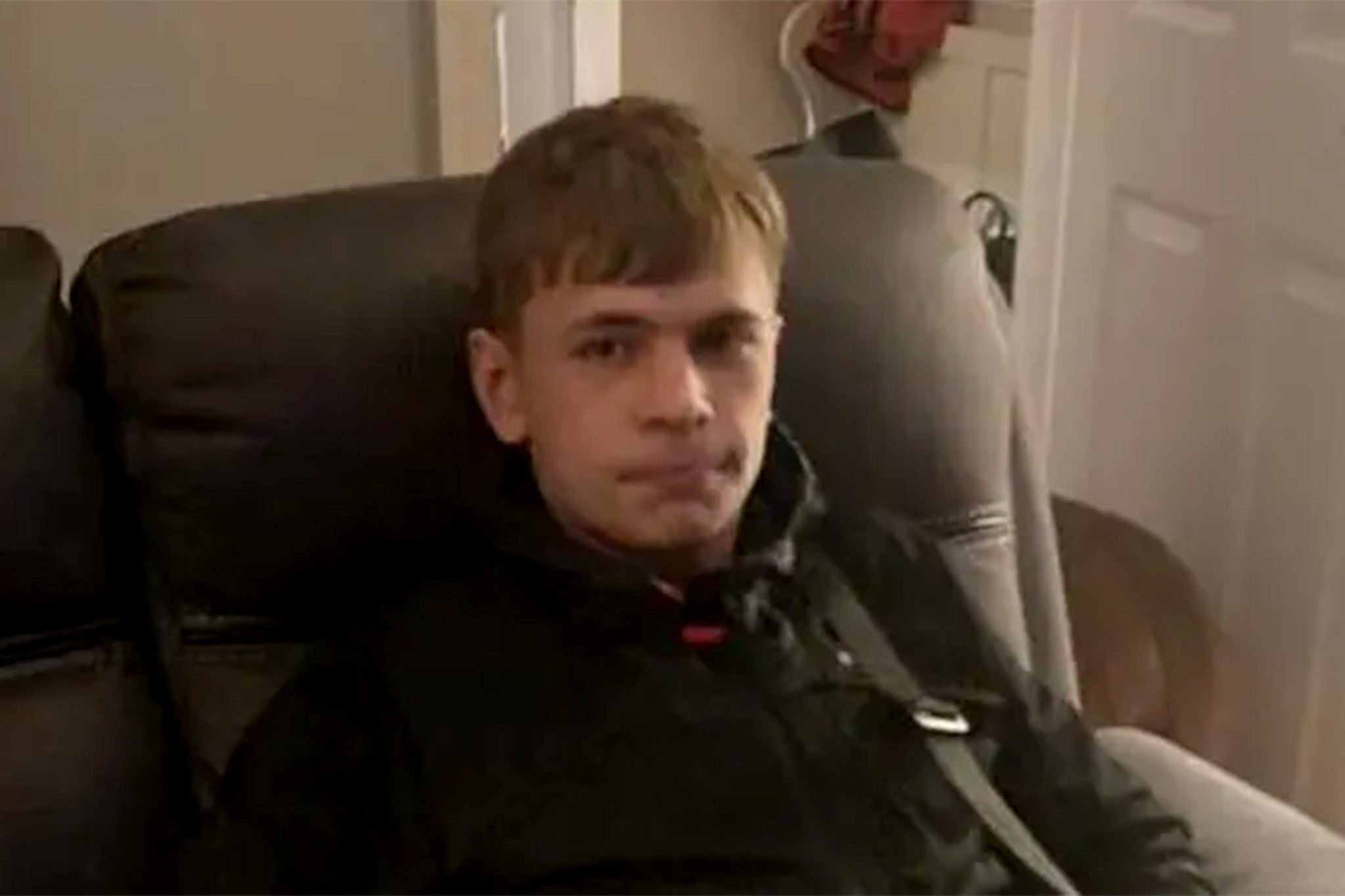
On Wednesday, after a five-week-long trial at Bristol Crown Court, three teenagers were found guilty of killing Mikey. One was convicted of murder, while the other two were found guilty of manslaughter.
Detective Inspector Mark Newbury said: “That three boys armed themselves with knives to go to a teenage girl’s 16th birthday party is utterly unconscionable.”
Authorities in the city have responded to the tragedies.
A violence reduction partnership of organisations involving the council and police has been running awareness events with parents and carers to pass on tell-tale signs of a child’s involvement in knife crime, such as missing blades from the kitchen or new clothes they could not normally afford.
Professionals who work with children are also being trained as street doctors. A knife crime task force set up by the council will produce a report and recommendations in the coming months.
Councillor Tim Ball, a council cabinet member, said: “Ours is generally a safe city and area but we are sadly not immune to the national issue of knife crime. It’s important the police continue to take a strong approach to enforcement, wherever necessary and appropriate.”
“It is imperative that we continue to take action to prevent any more tragic incidents by working with our partners, parents and carers to make sure Bath and North East Somerset is safe for all our residents,” he added.
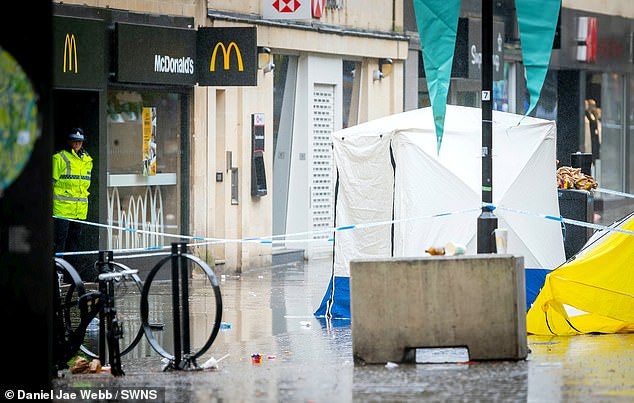
Chief Inspector Scott Hill took over Bath’s neighbourhood team in the months after Mikey’s death and said tackling knife crime was one of his starting priorities.
“If you look at research, you see 99 per cent of people don’t carry a knife but that doesn’t help the perception when you have a number of incidents that are relatively close together,” he told The Independent.
“It is a wake-up call to ensure that we are addressing knife crime as an issue ... it is a worry for me as local policing commander and it’s something we’re working really closely with our partners on.”
Ch Insp Hill said the force was improving intelligence, talking to children aged between 11 and 13 in schools and stepping up police presence in response to incidents such as the stabbing in January to reassure the public.
He said the public needs to understand that children are more likely to be injured or killed by a knife if they carry one.
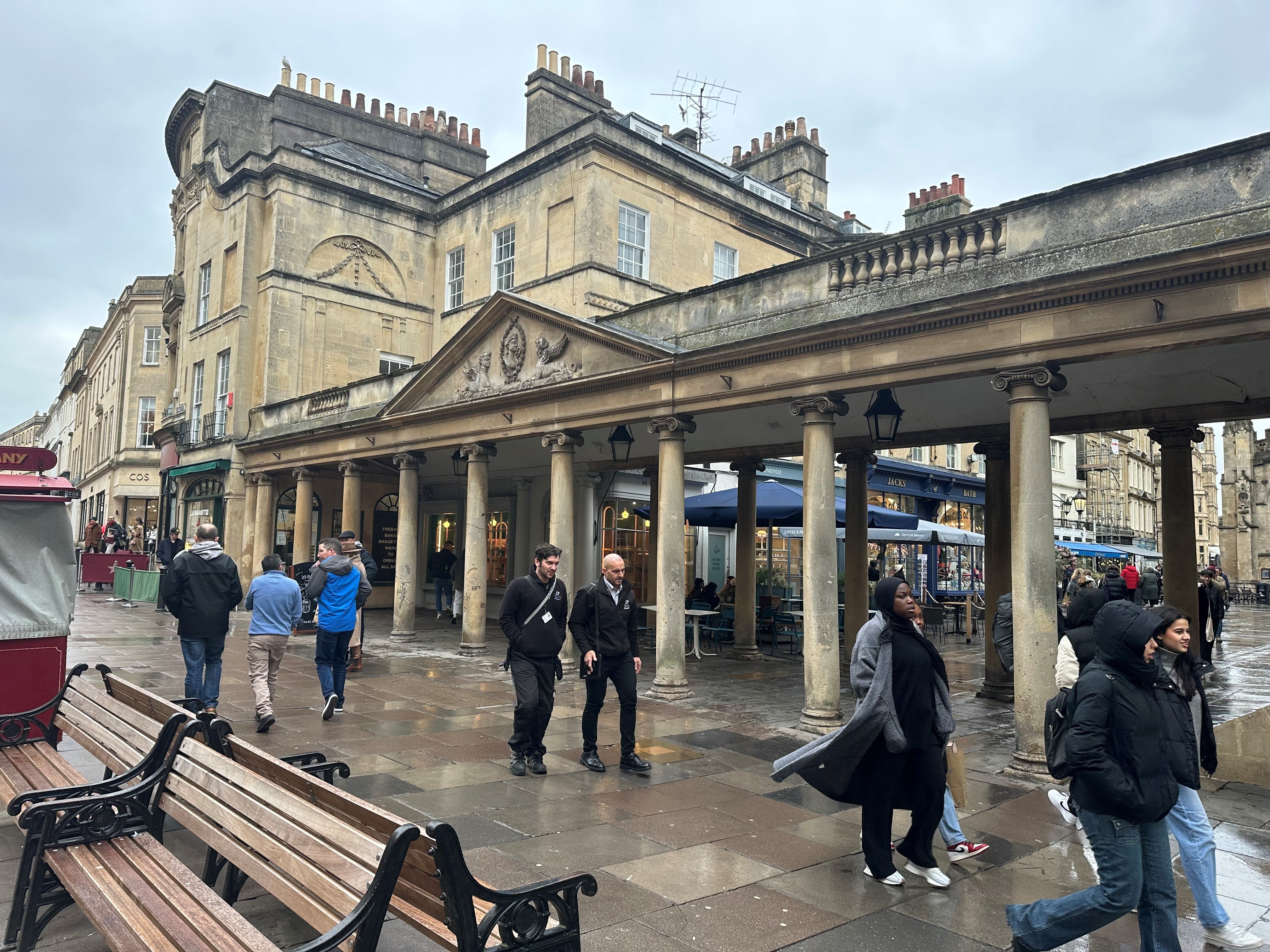
“The aim of all this is prevention and moving young people away from knife crime,” he said.
Asked why some people still armed themselves, Ch Insp Hill said there “will be a small cohort of children who are under the illusion that carrying a knife will keep you safe”.
City charities are playing a more prominent role in tackling the issue following years of cuts to youth provision services – but they face their own challenges.
Charity Developing Health and Independent run a drug and alcohol service called Project 28, providing one-to-one sessions for young people.
Chief executive Rosie Phillips told The Independent she believed knife crime in the city was linked to drugs and social media, as well as fall-off in youth provision, such as youth clubs, which she said provided a “trusted adult figure” for children to speak to and be looked after by.
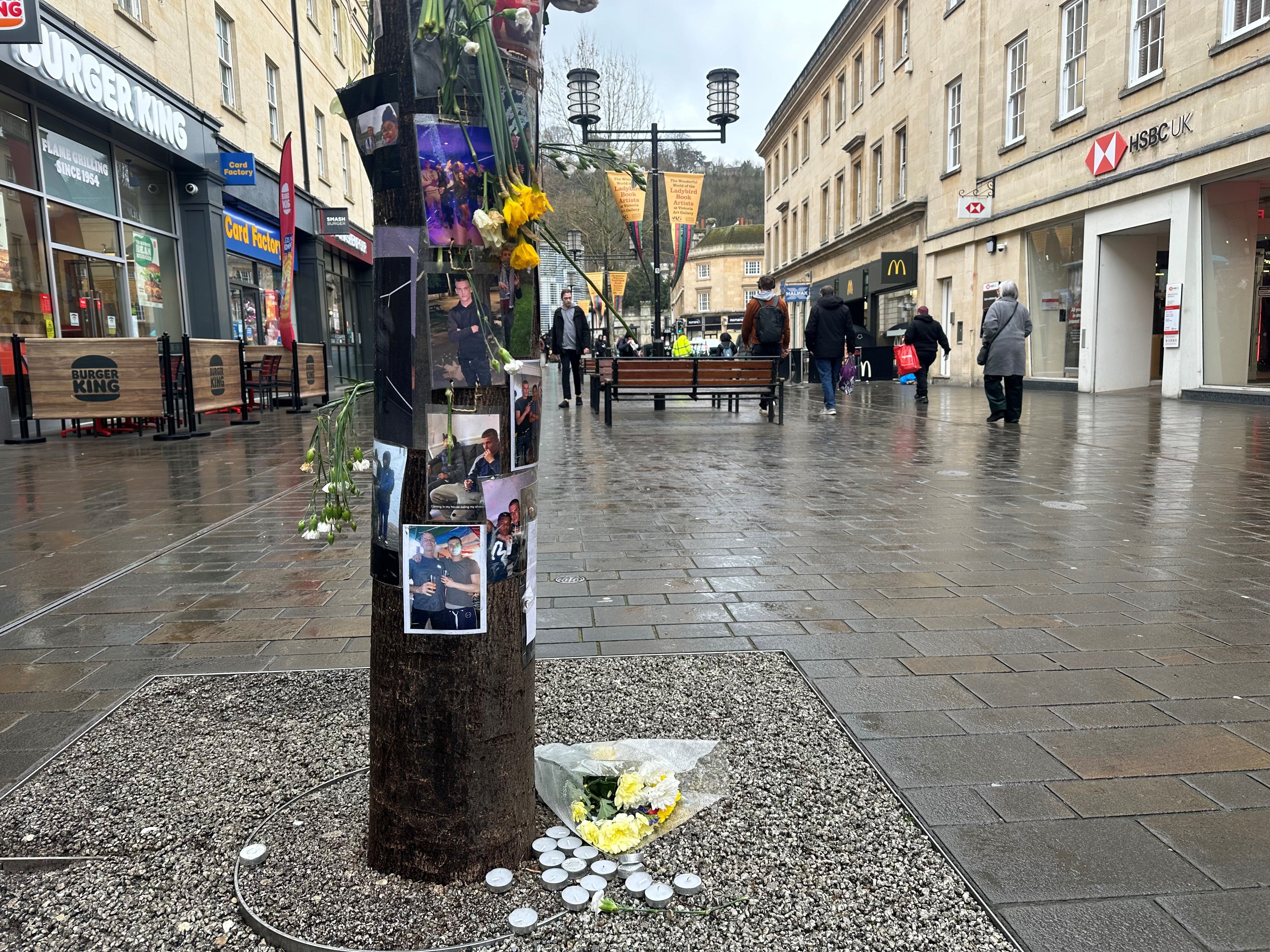
“Once you get some kids tooling up, then you get others – so much more is needed on the education side of things,” said Ms Phillips, who also spoke of her frustration at a patchy funding situation with organisations unable to apply for long-term projects to tackle the issue.
Another charity called Mentoring Plus runs sessions at a youth club in the city two evenings a week. Chief executive Ruth Keily said numbers attending were 50 per cent down from before the pandemic, while for group activities with older children, it was “significantly harder to attract them out of the house”.
She added: “This is because of a fear of crime alongside a sense of ‘I don’t need to go out – I can socialise online’. So I feel that if a group of young people are together at a party in a house like the situation of Mikey, they will have had less opportunity to rub together.
“So we are seeing young people avoiding going out and then feeling more at risk when they do.”
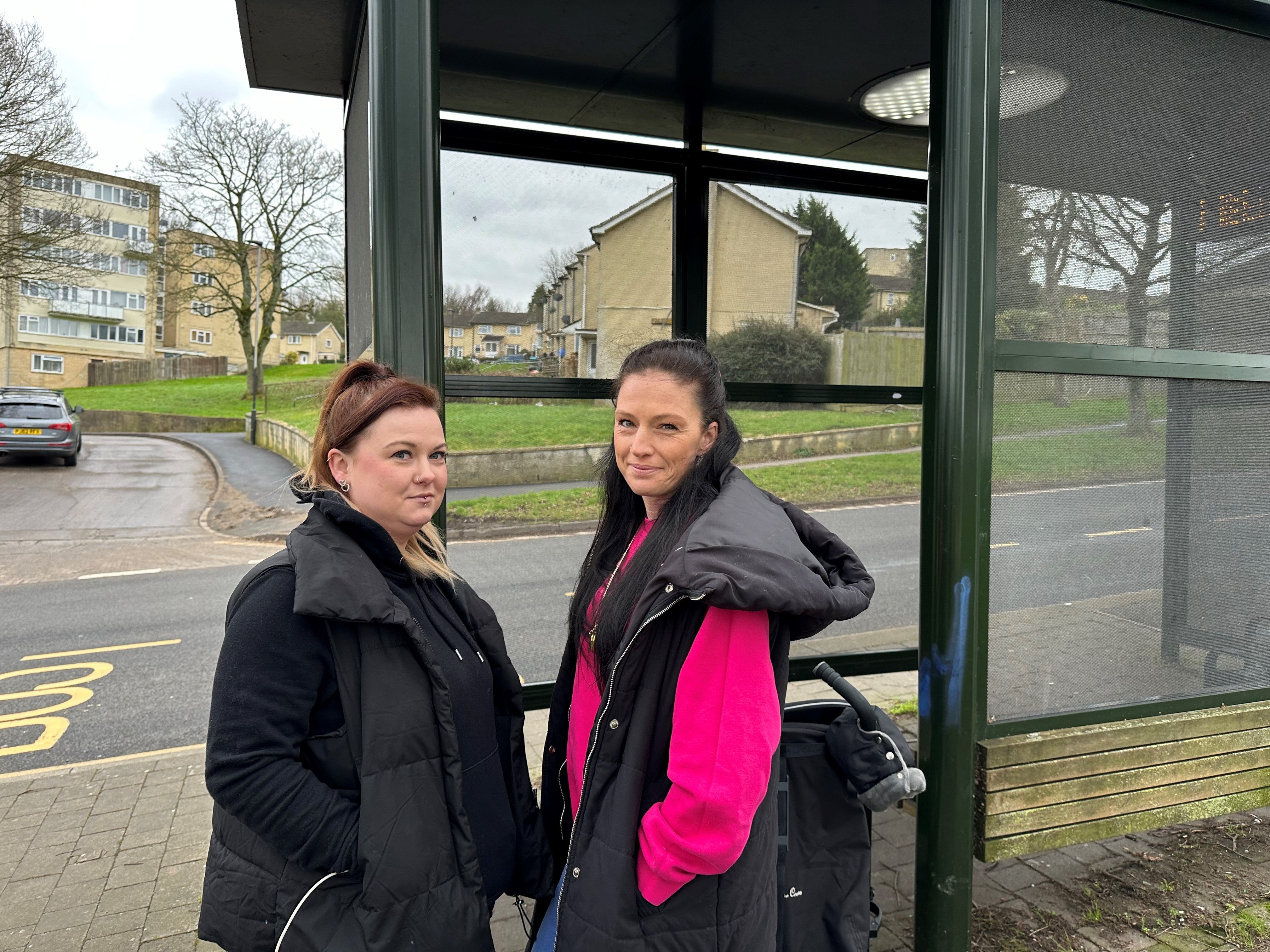
Ms Keily also highlighted inequality in the city: with five neighbourhoods within the most deprived 20 per cent of areas in the country, poverty is a factor in young people turning to crime.
The work being done is still not enough for parents living in Twerton – one of the most deprived areas in the city. Built on the slopes looking down over the city, the village features the 1930s-built Whiteway Housing Estate along a popular city farm.
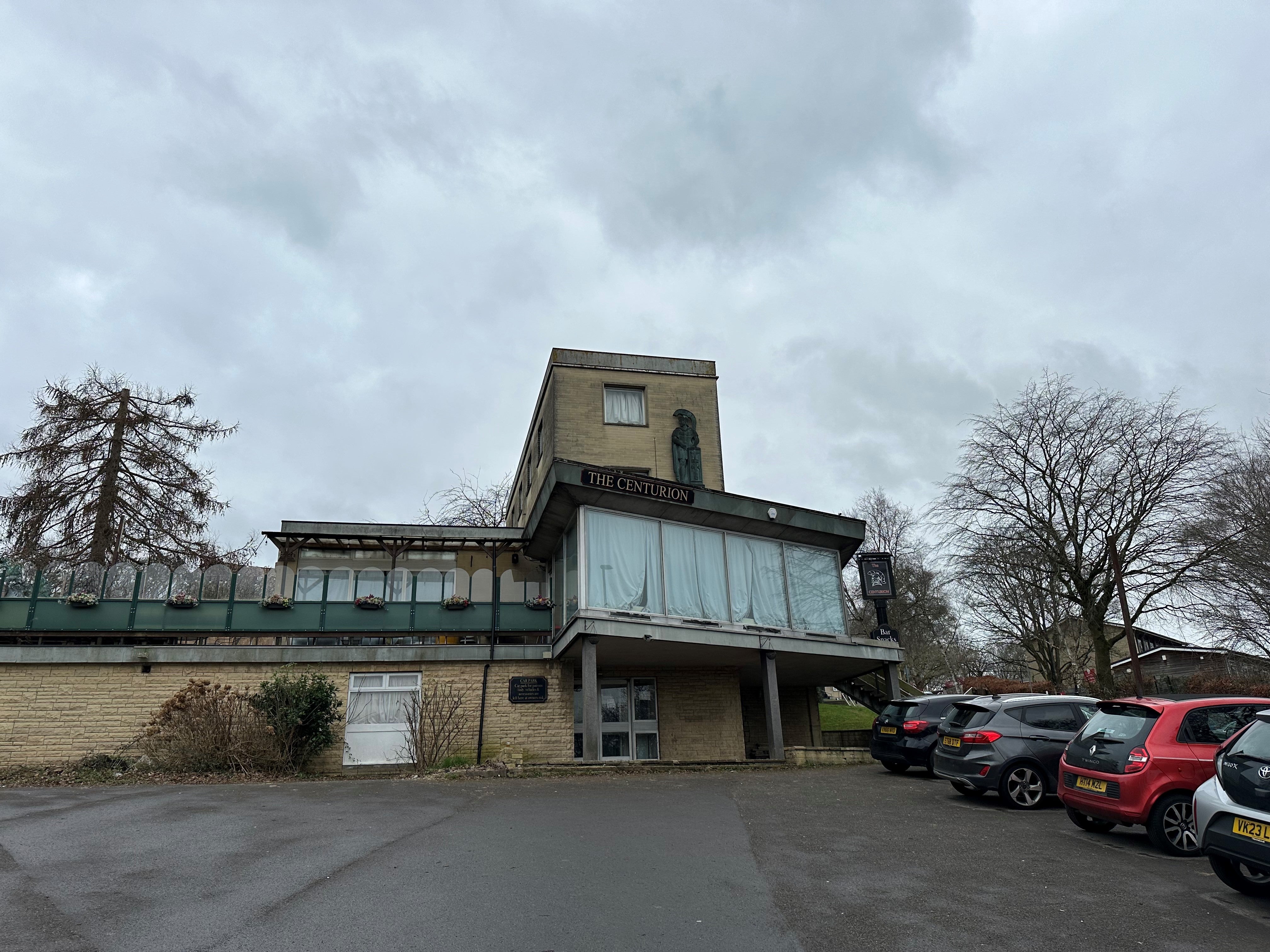
Opposite the grade II-listed Centurion pub, Sophie Hardy and Donna wait at a bus stop.
“My son is 14, he knows of boys who think bringing out a knife is big and will protect them,” said Donna, 28, who did not want to give her surname. “As a parent, you are always thinking if they will come home, if something will go wrong.”
Ms Hardy, 34, said: “We’re a long way from the postcard picture of Bath up here – and sometimes it feels like we’re on our own. No one wants to see another teenager murdered but more needs to be done to support our kids for the sake of our city’s future.”

